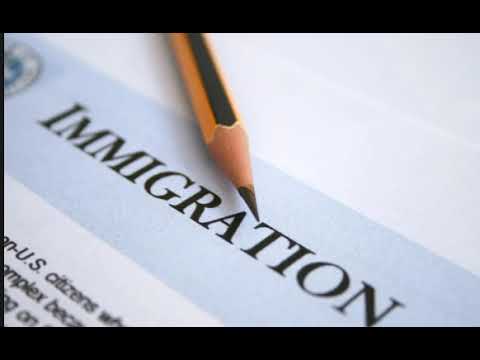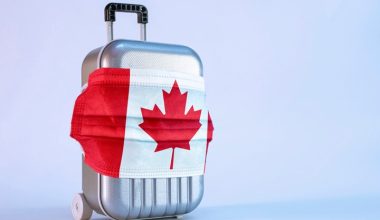Canada has long been seen as a welcoming nation that encourages immigration and embraces diversity.
There has never been a better moment to start the immigration process in Canada, with aspirations to welcome a record 465,000 newcomers. There are many choices available in Canada to assist you fulfil your dream of living there, whether you’re looking for temporary or permanent residency. We will examine 13 different pathways to immigration to Canada in 2024 in this comprehensive guide, including family classes, business programmes, economic programmes, temporary residence options, and refugee immigration.
Let’s now discuss each of these 13 immigration routes to Canada in detail for 2024.
Is Canada Good for Immigration ?
Of course! Canada is a popular place to immigrate because of its high level of life, robust economy, and friendly culture.
Canada, a nation that values variety and inclusivity, offers a warm atmosphere that allows immigrants to thrive and assimilate into society with ease.
- Quality of Life: With exceptional healthcare, education, and safety, Canada provides an enviable lifestyle by worldwide standards.
- Employment Opportunities: With a strong and diverse economy, Canada offers numerous career opportunities for skilled professionals in a variety of industries.
- Inclusive Society: Known for its cosmopolitan ethos, Canada embraces and celebrates diversity, making every newcomer feel welcome.
- Scenic Beauty & Recreation: From magnificent landscapes to bustling cities, Canada provides a diverse range of outdoor and urban lifestyles to suit all tastes.
- Immigration-Friendly Policies: Canada’s immigration rules and initiatives are meant to make it easier for newcomers to enter and settle in the country.
13 ways to migrate to Canada in 2024
1. Express Entry.
Still the most common way to immigrate to Canada is through Express Entry. The three main government programs—federal skilled trades, Canadian Experience Class, and government skilled worker—are selected using this flagship system. Canada anticipates admitting approximately 83,000 Federal High Skilled immigrants in 2024, with even higher numbers anticipated for succeeding years, according to the most recent Immigration Levels Plan.
With the publication of the amended National Occupational Classification (NOC 2021), which now contains 16 additional jobs eligible for the programme, Express Entry’s eligibility requirements were recently changed. This year, Express Entry will provide occupation-specific drawings to meet certain labour market demands.
2. Quebec
As a province, Quebec has total control over its economic immigration strategy.
By mandating that all immigrants admitted into the province speak French, the provincial government of Quebec has made the preservation of the province’s culture a priority. Fluency in French is necessary, however applicants who receive a qualified job offer might have some leeway. Quebec has expressed its desire to accept 50,000 immigrants in total, with a particular focus on economic initiatives.
It is unclear, though, how Quebec’s policy of restricting immigration will work in light of the province’s ongoing labour deficit and the need to boost its economy.
3. Employer-Driven Pilot Programs
Certain sectors of the economy or areas with persistent labour shortages are the focus of a few employer-driven pilot programmes in Canada. The Atlantic Immigration Programme (AIP), which covers the four Atlantic provinces and has been deemed permanent, is one of the most well-known programmes. The Economic Mobility Pathways Project, the Rural and Northern Immigration Pilot, and the Agri-Food Pilot are other programmes.
These programmes give businesses the ability to identify certain labour needs and hire immigrants who can fulfil them. Additionally, a brand-new Municipal Nominee Programme (MNP) that will enable communities to meet labour market demands locally is presently being developed.
4. Provincial Nominee Program.
Another significant pathway to immigration to Canada in 2024 is the Provincial Nominee Programme (PNP).
Canada plans to implement two territorial and nine provincial immigration programmes, with an estimated 105,000 entrants expected. Canada is divided into territories and provinces, each with its own occupation list and streams tailored to the local economy. Candidates can take advantage of both methods through the connections that certain provincial programmes have with Express Entry streams. Reviewing each province’s target occupation listings and streams is essential because federal and provincial initiatives may have different objectives.
5. Start-up Visa.
For those with a business mindset, the Start-Up Visa programme is a significant pathway to immigration to Canada.
Candidates must have the support of a designated angel investor group, venture capital fund, or business incubator in addition to a qualified business or business plan in order to be eligible. They must also exhibit the language proficiency and settlement money that are required. While establishing their company, candidates can enter Canada on a work permit and then seek for permanent residence.
Through business programmes, Canada anticipates welcoming 3,500 tourists in 2024, with the Start-Up Visa contributing significantly to the total.
6. Provincial Business Programs.
Provincial Nominee programmes are entrepreneurship programmes managed by numerous Canadian governments.
Depending on the province or territory they serve, these programmes have unique requirements. Examining provincial business programmes may be a wise move if you are an enterprising person who wants to launch a firm in a certain Canadian province.
7. Spouses, Partners, and Children
Canada welcomes the reuniting of families and permits the immigration of partners, spouses, and children.
Applications from both inside and outside of Canada are accepted for the Spouse and Partner stream, albeit there are requirements that must be met. A work visa is available to spouses and partners while their applications are being processed. Sponsored children typically have no spouse or partner and are younger than 22.
For children over 22 who are financially dependent or have special needs, there are provisions, though. Furthermore, Canada offers a different stream specifically for adoption abroad.
8. Parents and grandparents.
The Parents and Grandparents Programme in Canada is based on a lottery system where sponsors express interest in a pool, are chosen at random, and are then encouraged to submit an application. By 2024, the initiative hopes to welcome 28,500 new participants. But the programme has had trouble with oversubscription, and since 2020, no new sponsors have been accepted.
It’s possible that Immigration, Refugees and Citizenship Canada (IRCC) will open up new applications for interest-to-sponsor forms in 2024. If they are not selected, parents and grandparents can apply for a Super Visa, which allows them to stay in Canada for prolonged periods of time with their families.
9. Self-Employed Programs
Opportunities are available to individuals with relevant experience in self-employment through self-employment programmes run by both the federal government and Quebec. The federal Self-Employed Class is intended for candidates who wish to advance in their careers and make a major impact on Canada’s sports, arts, or cultural scene.
In Quebec, candidates who work for themselves either start their own businesses or pursue vocations.
Through these programmes, people with unique skills and abilities can become citizens of Canada.
10. Study Permit and Post-Graduate Work Permit
Through a reputable process, international students can apply for permanent residency in Canada.
By 2024, there will be 750,000 foreign students studying in Canada, making them the largest group of temporary residents. After entering the country with a study permit, students can apply for a post-graduation work permit, which gives them substantial work experience and opens the door to immigration via Express Entry.
Even while there is a pathway, it is very competitive, and very few international students will be granted permanent residency.
11. Buy A Business And Move To Canada
There are various options available to people who want to buy a company and move to Canada.
Entrepreneurs can grow their enterprises in Canada with the help of the Ontario Entrepreneur Success Initiative and the Temporary Foreign Worker Programme.
Although some exemptions from LMIA advertising guidelines have been removed due to recent adjustments, qualified candidates can still use this option. An experimental programme called the Ontario Entrepreneur Success Initiative aims to attract investors and newcomers from beyond the Toronto region.
12. Refugee immigration
As part of its humanitarian endeavours, Canada is steadfast in its commitment to accepting refugees. More than 76,000 new immigrants will be admitted under the Refugee Class under the 2024 Immigration Levels Plan. Through its involvement in the Economic Mobility Pathways Project, Canada hopes to attract skilled refugees to its shores. Ukraine, Afghanistan, and Syria have profited from Canada’s commitment to immigration of refugees.
13. Temporary workers.
There are a lot of temporary workers in Canada: 750,000 people in various streams of work visas are employed temporarily.
Live-in carers, seasonal agricultural labourers, low-skilled workers, and highly skilled workers are all included under the Temporary Foreign Worker Programme (TFWP). The International Mobility Programme (IMP) allows firms in Canada to hire foreign workers under specific situations without requiring them to complete a Labour Market Impact Assessment (LMIA). Under trade agreements or with open work permits, temporary employees are permitted entry into Canada. Provincial initiatives also seek to draw skilled workers to the IT sector.
Is the process of obtaining a visa for Canada easy?
Becoming a candidate is made easier by Canada’s more lenient immigration laws compared to other countries.
Despite not lowering immigration standards in response to the global economic crisis, Canada has the greatest immigration service of all. Those who don’t fit the criteria for immigration consideration can apply for work permits and other alternatives to non-immigrant visas from the government. For those who fulfil the conditions, the bulk of these programmes offer options to immigration and permanent residency.
Business owners, employees, and independent contractors can choose from a range of visa and immigration options available in Canada. It also offers the best social security benefit package to immigrants and their families.
Canada is well-funded and has some of the top health and educational systems in the world.
Canadian employment opportunities are in great demand since the nation offers highly skilled foreign workers plenty of career opportunities. Canada offers some of the best wages and working conditions in the world. For instance, the minimum wage in Nunavut Territory is $13.00 per hour. In Nunavut Territory, the hourly pay is $13.00.
The benefit of having a passport allows a Canadian citizen to visit almost all major countries in the world without the need for a visa.
This is the primary justification for why business owners, wealthy people, and investors ought to submit an application for immigration to Canada in the first place. Additionally, it eliminates restrictions on where one can work by enabling employees to live and work wherever in Canada. The nation is also endowed with an abundance of minerals and other natural resources, which offer the government substantial financial advantages and attract foreign direct investment.
It also presents excellent opportunities for both career and personal development. Along with freedom of expression, the nation protects rights to cultural, religious, and linguistic freedoms. Maybe the only place in the world where you can crash with someone and get an apology is Canada. It is well acknowledged that Canadians are the most politically aware people on the planet, and you can expect a warm welcome from your family and friends upon your arrival.
FAQ
Can I travel to Canada in 2024?
Of course! In 2024, Canada will still be open to tourists, immigrants, and students. To make sure you get the most accurate and updated information, check the most recent immigration policies and travel advisories.
What is the simplest way to immigrate to Canada in 2024?
Although the simplest method varies according on the individual, family sponsorship, Express Entry, and Provincial Nominee Programmes (PNPs) are typically the most uncomplicated choices. Each has different requirements, so it’s important to choose which one best suits your needs.
Is Canada going to end immigration after 2025?
No official announcement or suggestion has been made that Canada would stop accepting immigrants after 2025. Canada has long valued the contributions made by immigrants and keeps extending its range of immigration laws in an effort to draw in top talent from around the world and promote population expansion.
Which Canadian city is the most easily migrated to?
More often than not, the particular immigration programme and unique situation dictate the ease of migration, not the city. On the other hand, cities like Toronto, Vancouver, and Calgary that offer more job prospects and Provincial Nominee Programmes might offer potential immigrants additional options.
What is the best age to relocate to Canada?
Although immigrants of any age are welcome in Canada, those between the ages of 20 and 29 usually receive the highest age-related points under the Express Entry Comprehensive Ranking System (CRS). But there are other important factors to take into account while applying for immigration.
How do I immigrate to Canada without a job offer in 2024?
There are a number of ways to enter Canada without a job offer, such as applying through the Provincial Nominee Programme (PNP), family sponsorship, or the Express Entry route. Look into and pick the programme that best fits your needs and circumstances.
In summary
Lastly, there are numerous immigration choices available to families and individuals in Canada. Economic programmes such as Express Entry and the Provincial Nominee Programme, along with business programmes, family classes, temporary residence options, and refugee immigration, are available to people of all backgrounds and goals.
Canada is a popular destination for immigrants from all over the world, regardless of whether they are looking to live there permanently or temporarily due to its welcoming attitude and inclusive regulations.
Wait for approval code to Appear






